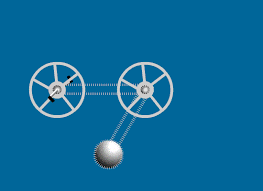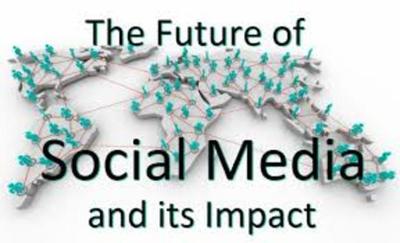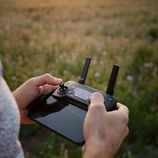We found 21 results that contain "technology"
Posted on: #iteachmsu


Science and technology
Science and technology is a topic that encompasses science, technology, and the interactions between the two. Science is a systematic enterprise that builds and organizes knowledge in the form of explanations and predictions about nature and the universe. Technology is the collection of techniques, methods or processes used in the production of goods or services or in the accomplishment of objectives, such as scientific investigation, or any other consumer demands.
Posted on: #iteachmsu


Incorporating Technologies in the Science Classroom
This playlist is about helping instructors use technology in their classrooms.
Posted on: #iteachmsu


15 Hot New Technologies That Will Change Everything By Christopher Null
The Next Big thing? The memristor, a microscopic component that can "remember" electrical states even when turned off. It's expected to be far cheaper and faster than flash storage. A theoretical concept since 1971, it has now been built in labs and is already starting to revolutionize everything we know
Disciplinary Content
Posted on: #iteachmsu


What Is the Real Impact of Social Media?
Information and communication technology has changed rapidly over the past 20 years with a key development being the emergence of social media.
The pace of change is accelerating. For example, the development of mobile technology has played an important role in shaping the impact of social media. Across the globe, mobile devices dominate in terms of total minutes spent online. This puts the means to connect anywhere, at any time on any device in everyone’s hands.
The pace of change is accelerating. For example, the development of mobile technology has played an important role in shaping the impact of social media. Across the globe, mobile devices dominate in terms of total minutes spent online. This puts the means to connect anywhere, at any time on any device in everyone’s hands.
Assessing Learning
Posted on: Smoke test group on...


Smoke test -- A management information system (MIS) is a system
A management information system (MIS) is a system that collects a company's data and uses it to make more nimble, informed, and impactful business decisions. It's also an academic discipline you can study if you're interested in this type of work. If you enjoy using technology to solve business problems or answer important business questions, then a career in MIS may be a good fit.
Learn more about the benefits of a management information system, key skills you'll need to succeed, and career paths you can pursue. Afterward, if you're interested in building important business
Learn more about the benefits of a management information system, key skills you'll need to succeed, and career paths you can pursue. Afterward, if you're interested in building important business
DISCIPLINARY CONTENT
Posted on: #iteachmsu


Getting Started
What is the #iteachmsu Commons?
Welcome to the #iteachmsu Commons
You teach MSU. We, the Academic Advancement Network, The Graduate School, and The Hub for Innovation in Learning and Technology, believe that a wide educator community (faculty, TAs, ULAs, instructional designers, academic advisors, et al.) makes learning happen across MSU. But, on such a large campus, it can be difficult to fully recognize and leverage this community’s teaching and learning innovations. To address this challenge, the #iteachmsu Commons provides an educator-driven space for sharing teaching resources, connecting across educator networks, and growing teaching practice.
#iteachmsu Commons content may be discipline-specific or transdisciplinary, but will always be anchored in teaching competency areas. You will find short posts, blog-like articles, curated playlists, and a campus-wide teaching and learning events calendar. We cultivate this commons across spaces. And through your engagement, we will continue to nurture a culture of teaching and learning across MSU and beyond.
How to login
To begin creating content of your own on the #iteachmsu Commons, simply click the green Login button in the upper right hand corner of the screen. Your account will automatically be provisioned after successfully logging into the MSU Net ID login prompt. Currently, only authenticated MSU faculty, staff and students can create content on the #iteachmsu Commons. However, external users are free to browse and share public facing content without logging into the site.
Where to start
If you are looking for brief instructive videos on the core functionality of the site, take a look at our Getting Started playlist. After viewing each one of the video tutorials on the playlist, you will receive a Contributor badge which will display on your profile
What Are the #iteachmsu Commons Policies?
Part of the mission of the #iteachmsu Commons is to provide space for sharing, reflecting, and learning for all educators on our campus wherever they are in their teaching development. The commons is designed to encourage these types of interactions and reflect policies outlined by the MSU Faculty Senate. We maintain the right to remove any post that violates guidelines as outlined here and by MSU. To maintain a useful and safer commons, we ask that you:
Follow the MSU Guidelines for Social Media.
Engage across the #iteachmsu commons in a civil and respectful manner. Content may be moderated in accordance with the MSU Guidelines for Social Media.Do not share private or confidential information via shared content on the #iteachmsu Commons.
Content posted on the #iteachmsu Commons is licensed under a Creative Commons Attribution-NonCommercial-ShareAlike 4.0 International license. Learn more about this licensing here. Posted comments, images, etc. on the #iteachmsu Commons do not necessarily represent the views of Michigan State University or the #iteachmsu Commons Team. Links to external, non-#iteachmsu Commons content do not constitute official endorsement by, or necessarily represent the views of, the #iteachmsu Commons or Michigan State University.
Other important policies:
MSU's Web Accessibility Statement
MSU's Privacy Statement
What if I Have #iteachmsu Commons Questions and/or Feedback?
If you have any concerns about #iteachmsu Commons content, please email us at iteach@msu.edu. We welcome all feedback and thank you for your help in promoting a safer, vibrant and respectful community.
Stay up to date with the #iteachmsu Digest
Welcome to the #iteachmsu Commons
You teach MSU. We, the Academic Advancement Network, The Graduate School, and The Hub for Innovation in Learning and Technology, believe that a wide educator community (faculty, TAs, ULAs, instructional designers, academic advisors, et al.) makes learning happen across MSU. But, on such a large campus, it can be difficult to fully recognize and leverage this community’s teaching and learning innovations. To address this challenge, the #iteachmsu Commons provides an educator-driven space for sharing teaching resources, connecting across educator networks, and growing teaching practice.
#iteachmsu Commons content may be discipline-specific or transdisciplinary, but will always be anchored in teaching competency areas. You will find short posts, blog-like articles, curated playlists, and a campus-wide teaching and learning events calendar. We cultivate this commons across spaces. And through your engagement, we will continue to nurture a culture of teaching and learning across MSU and beyond.
How to login
To begin creating content of your own on the #iteachmsu Commons, simply click the green Login button in the upper right hand corner of the screen. Your account will automatically be provisioned after successfully logging into the MSU Net ID login prompt. Currently, only authenticated MSU faculty, staff and students can create content on the #iteachmsu Commons. However, external users are free to browse and share public facing content without logging into the site.
Where to start
If you are looking for brief instructive videos on the core functionality of the site, take a look at our Getting Started playlist. After viewing each one of the video tutorials on the playlist, you will receive a Contributor badge which will display on your profile
What Are the #iteachmsu Commons Policies?
Part of the mission of the #iteachmsu Commons is to provide space for sharing, reflecting, and learning for all educators on our campus wherever they are in their teaching development. The commons is designed to encourage these types of interactions and reflect policies outlined by the MSU Faculty Senate. We maintain the right to remove any post that violates guidelines as outlined here and by MSU. To maintain a useful and safer commons, we ask that you:
Follow the MSU Guidelines for Social Media.
Engage across the #iteachmsu commons in a civil and respectful manner. Content may be moderated in accordance with the MSU Guidelines for Social Media.Do not share private or confidential information via shared content on the #iteachmsu Commons.
Content posted on the #iteachmsu Commons is licensed under a Creative Commons Attribution-NonCommercial-ShareAlike 4.0 International license. Learn more about this licensing here. Posted comments, images, etc. on the #iteachmsu Commons do not necessarily represent the views of Michigan State University or the #iteachmsu Commons Team. Links to external, non-#iteachmsu Commons content do not constitute official endorsement by, or necessarily represent the views of, the #iteachmsu Commons or Michigan State University.
Other important policies:
MSU's Web Accessibility Statement
MSU's Privacy Statement
What if I Have #iteachmsu Commons Questions and/or Feedback?
If you have any concerns about #iteachmsu Commons content, please email us at iteach@msu.edu. We welcome all feedback and thank you for your help in promoting a safer, vibrant and respectful community.
Stay up to date with the #iteachmsu Digest
Authored by: Admin #iteachmsu
Navigating Context
Posted on: #iteachmsu

About
Teaching Commons: “an emergent conceptual space for exchange and community among faculty, students, and all others committed to learning as an essential activity of life in contemporary democratic society” (Huber and Hutchings, 2005, p.1) What Is the #iteachmsu Commons? You teach MSU. We, the Academic Advancement Network, The Graduate School, and The Hub for Innovation in Learning and Technology, believe that a wide educator community (faculty, TAs, ULAs, instructional designers, academic advisors, et al.) makes learning happen across MSU. But, on such a large campus, it can be difficult to fully recognize and leverage this community’s teaching and learning innovations. To address this challenge, the #iteachmsu Commons provides an educator-driven space for sharing teaching resources, connecting across educator networks, and growing teaching practice. #iteachmsu Commons content may be discipline-specific or transdisciplinary, but will always be anchored in teaching competency areas. You will find blog posts, curated playlists, educator learning module pathways, and a campus-wide teaching and learning events calendar. We cultivate this commons across spaces. And through your engagement, we will continue to nurture a culture of teaching and learning across MSU and beyond. How Do I Contribute to the #iteachmsu Commons? Content is organized by posts, playlists and pathways.
Posts: Posts are shorter or longer-form blog postings about teaching practice(s), questions for the educator community, and/or upcoming teaching and learning events. With an MSU email address and free account signup, educators can immediately contribute blog posts and connected media (e.g. handouts, slide decks, class activity prompts, promotional materials). All educators at MSU are welcome to use and contribute to #iteachmsu. And there are no traditional editorial calendars. Suggested models of posts can be found here.
Playlists: Playlists are groupings of posts curated by individual educators and the #iteachmsu community. Playlists allow individual educators to tailor their development and community experiences based on teaching competency area, interest, and/or discipline.
Pathways: Pathways are groupings of educator learning modules curated by academic and support units for badges and other credentialing.
There are two ways to add your contribution to the space:
Contribute existing local resources for posts and pathways: Your unit, college, and/or department might already have educator development resources that could be of use to the wider MSU teaching and learning community. These could be existing blog posts on teaching practice, teaching webinars, and/or open educational resources (e.g classroom assessments, activities). This content will make up part of the posts, playlists, and pathways on this site. Educators can then curate these posts into playlists based on their individual interests. Please make sure to have permission to share this content on a central MSU web space.
Contribute new content for posts: A strength of the #iteachmsu Commons is that it immediately allows educators to share teaching resources, questions and events through posts to the entire community. Posts can take a variety of forms and are organized by teaching competency area categories, content tags, date, and popularity. Posts can be submitted by both individual educators and central units for immediate posting but must adhere to #iteachmsu Commons community guidelines. Posts could be:
About your teaching practice(s): You discuss and/or reflect on the practices you’re using in your teaching. In addition to talking about your ideas, successes, and challenges, we hope you also provide the teaching materials you used (sharing the assignment, slidedeck, rubric, etc.)
Responses to teaching ideas across the web or social media: You share your thoughts about teaching ideas they engage with from other media across the web (e.g. blog posts, social media posts, etc.).
Cross-posts from other teaching-related blogs that might be useful for the #iteachmsu community: You cross-post content from other teaching-related blogs they feel might be useful to the #iteachmsu community.
About teaching-related events: You share upcoming teaching related events as well as their thoughts about ideas they engage with events at MSU and beyond (e.g. workshops, conferences, etc.). If these events help you think in new ways about your practice, share them with the #iteachmsu community.
Questions for our community: You pose questions via posts to the larger community to get ideas for their practice and connect with others considering similar questions.
What Are the #iteachmsu Commons Policies?Part of the mission of the #iteachmsu Commons is to provide space for sharing, reflecting, and learning for all educators on our campus wherever they are in their teaching development. The commons is designed to encourage these types of interactions and reflect policies outlined by the MSU Faculty Senate. We maintain the right to remove any post that violates guidelines as outlined here and by MSU. To maintain a useful and safer commons, we ask that you:
Follow the MSU Guidelines for Social Media.
Engage across the #iteachmsu commons in a civil and respectful manner. Content may be moderated in accordance with the MSU Guidelines for Social Media.
Do not share private or confidential information via shared content on the #iteachmsu Commons.
Content posted on the #iteachmsu Commons is licensed under a Creative Commons Attribution-NonCommercial-ShareAlike 4.0 International license. Learn more about this licensing here. Posted comments, images, etc. on the #iteachmsu Commons do not necessarily represent the views of Michigan State University or the #iteachmsu Commons Team. Links to external, non-#iteachmsu Commons content do not constitute official endorsement by, or necessarily represent the views of, the #iteachmsu Commons or Michigan State University. What if I Have #iteachmsu Commons Questions and/or Feedback?If you have any concerns about #iteachmsu Commons content, please email us at iteach@msu.edu. We welcome all feedback and thank you for your help in promoting a safer, vibrant and respectful community.
Posts: Posts are shorter or longer-form blog postings about teaching practice(s), questions for the educator community, and/or upcoming teaching and learning events. With an MSU email address and free account signup, educators can immediately contribute blog posts and connected media (e.g. handouts, slide decks, class activity prompts, promotional materials). All educators at MSU are welcome to use and contribute to #iteachmsu. And there are no traditional editorial calendars. Suggested models of posts can be found here.
Playlists: Playlists are groupings of posts curated by individual educators and the #iteachmsu community. Playlists allow individual educators to tailor their development and community experiences based on teaching competency area, interest, and/or discipline.
Pathways: Pathways are groupings of educator learning modules curated by academic and support units for badges and other credentialing.
There are two ways to add your contribution to the space:
Contribute existing local resources for posts and pathways: Your unit, college, and/or department might already have educator development resources that could be of use to the wider MSU teaching and learning community. These could be existing blog posts on teaching practice, teaching webinars, and/or open educational resources (e.g classroom assessments, activities). This content will make up part of the posts, playlists, and pathways on this site. Educators can then curate these posts into playlists based on their individual interests. Please make sure to have permission to share this content on a central MSU web space.
Contribute new content for posts: A strength of the #iteachmsu Commons is that it immediately allows educators to share teaching resources, questions and events through posts to the entire community. Posts can take a variety of forms and are organized by teaching competency area categories, content tags, date, and popularity. Posts can be submitted by both individual educators and central units for immediate posting but must adhere to #iteachmsu Commons community guidelines. Posts could be:
About your teaching practice(s): You discuss and/or reflect on the practices you’re using in your teaching. In addition to talking about your ideas, successes, and challenges, we hope you also provide the teaching materials you used (sharing the assignment, slidedeck, rubric, etc.)
Responses to teaching ideas across the web or social media: You share your thoughts about teaching ideas they engage with from other media across the web (e.g. blog posts, social media posts, etc.).
Cross-posts from other teaching-related blogs that might be useful for the #iteachmsu community: You cross-post content from other teaching-related blogs they feel might be useful to the #iteachmsu community.
About teaching-related events: You share upcoming teaching related events as well as their thoughts about ideas they engage with events at MSU and beyond (e.g. workshops, conferences, etc.). If these events help you think in new ways about your practice, share them with the #iteachmsu community.
Questions for our community: You pose questions via posts to the larger community to get ideas for their practice and connect with others considering similar questions.
What Are the #iteachmsu Commons Policies?Part of the mission of the #iteachmsu Commons is to provide space for sharing, reflecting, and learning for all educators on our campus wherever they are in their teaching development. The commons is designed to encourage these types of interactions and reflect policies outlined by the MSU Faculty Senate. We maintain the right to remove any post that violates guidelines as outlined here and by MSU. To maintain a useful and safer commons, we ask that you:
Follow the MSU Guidelines for Social Media.
Engage across the #iteachmsu commons in a civil and respectful manner. Content may be moderated in accordance with the MSU Guidelines for Social Media.
Do not share private or confidential information via shared content on the #iteachmsu Commons.
Content posted on the #iteachmsu Commons is licensed under a Creative Commons Attribution-NonCommercial-ShareAlike 4.0 International license. Learn more about this licensing here. Posted comments, images, etc. on the #iteachmsu Commons do not necessarily represent the views of Michigan State University or the #iteachmsu Commons Team. Links to external, non-#iteachmsu Commons content do not constitute official endorsement by, or necessarily represent the views of, the #iteachmsu Commons or Michigan State University. What if I Have #iteachmsu Commons Questions and/or Feedback?If you have any concerns about #iteachmsu Commons content, please email us at iteach@msu.edu. We welcome all feedback and thank you for your help in promoting a safer, vibrant and respectful community.
Posted by: Scarlet Ethan Edien
Posted on: Smoke test group on...


Smoke test -- management information system (MIS)
A management information system (MIS) is a system that collects a company's data and uses it to make more nimble, informed, and impactful business decisions. It's also an academic discipline you can study if you're interested in this type of work. If you enjoy using technology to solve business problems or answer important business questions, then a career in MIS may be a good fit.
Learn more about the benefits of a management information system, key skills you'll need to succeed, and career paths you can pursue. Afterward, if you're interested in building important business
Learn more about the benefits of a management information system, key skills you'll need to succeed, and career paths you can pursue. Afterward, if you're interested in building important business
Authored by: vijaya
Posted on: Smoke test group : ...


Smoke test: What is Smart Farming? It's The Future of Agriculture -- edited
The Internet of Things (IoT) has provided ways to improve nearly every industry imaginable. In agriculture, IoT has not only provided solutions to often time-consuming and tedious tasks but is totally changing the way we think about agriculture. What exactly is a smart farm, though? Here is a rundown of what smart farming is and how it's changing agriculture.
What is a Smart Farm?
Smart farming refers to managing farms using modern Information and communication technologies to increase the quantity and quality of products while optimizing the human labor required.
Among the technologies available for present-day farmers are:
Sensors: soil, water, light, humidity, temperature management
Software: specialized software solutions that target specific farm types or applications agnostic IoT platforms
Connectivity: cellular, LoRa
Location: GPS, Satellite
Robotics: Autonomous tractors, processing facilities
Data analytics: standalone analytics solutions, data pipelines for downstream solutions
What is a Smart Farm?
Smart farming refers to managing farms using modern Information and communication technologies to increase the quantity and quality of products while optimizing the human labor required.
Among the technologies available for present-day farmers are:
Sensors: soil, water, light, humidity, temperature management
Software: specialized software solutions that target specific farm types or applications agnostic IoT platforms
Connectivity: cellular, LoRa
Location: GPS, Satellite
Robotics: Autonomous tractors, processing facilities
Data analytics: standalone analytics solutions, data pipelines for downstream solutions
Posted by: Scarlet Ethan Edien
Justice and Belonging
Posted on: Smoke test group on...


Smoke test -- A management information system (MIS) is a system that collects a company's data and uses it to make more nimble, informed, and impactful business decisions. It's also an academic discipline you can study if you're interested in this type of work. If you enjoy using technology to solve business problems or answer important business questions, then a career in MIS may be a good fit.
Learn more about the benefits of a management information system, key skills you'll need to succeed, and career paths you can pursue. Afterward, if you're interested in building important business
Learn more about the benefits of a management information system, key skills you'll need to succeed, and career paths you can pursue. Afterward, if you're interested in building important business
Posted by: Scarlet Ethan Edien
Navigating Context
Posted on: Smoke test group : ...


Smoke test: The Internet of Things (IoT) has provided ways to improve nearly every industry imaginable. In agriculture, IoT has not only provided solutions to often time-consuming and tedious tasks but is totally changing the way we think about agriculture. What exactly is a smart farm, though? Here is a rundown of what smart farming is and how it's changing agriculture.
What is a Smart Farm?
Smart farming refers to managing farms using modern Information and communication technologies to increase the quantity and quality of products while optimizing the human labor required.
Among the technologies available for present-day farmers are:
Sensors: soil, water, light, humidity, temperature management
Software: specialized software solutions that target specific farm types or applications agnostic IoT platforms
Connectivity: cellular, LoRa
Location: GPS, Satellite
Robotics: Autonomous tractors, processing facilities
Data analytics: standalone analytics solutions, data pipelines for downstream solutions -- edited
What is a Smart Farm?
Smart farming refers to managing farms using modern Information and communication technologies to increase the quantity and quality of products while optimizing the human labor required.
Among the technologies available for present-day farmers are:
Sensors: soil, water, light, humidity, temperature management
Software: specialized software solutions that target specific farm types or applications agnostic IoT platforms
Connectivity: cellular, LoRa
Location: GPS, Satellite
Robotics: Autonomous tractors, processing facilities
Data analytics: standalone analytics solutions, data pipelines for downstream solutions -- edited
Posted by: Scarlet Ethan Edien
Posted on: #iteachmsu

Edited -- A natural disaster is the highly harmful impact on a society or community following a natural hazard event. The term "disaster" itself is defined as follows: "Disasters are serious disruptions to the functioning of a community that exceed its capacity to cope using its own resources. Disasters can be caused by natural, man-made and technological hazards, as well as various factors that influence the exposure and vulnerability of a community."[17]
The US Federal Emergency Management Agency (FEMA) explains the relationship between natural disasters and natural hazards as follows: "Natural hazards and natural disasters are related but are not the same. A natural hazard is the threat of an event that will likely have a negative impact. A natural disaster is the negative impact following an actual occurrence of natural hazard in the event that it significantly harms a community.[1] An example of the distinction between a natural hazard and a disaster is that an earthquake is the hazard which caused the 1906 San Francisco earthquake disaster.
A natural hazard[18] is a natural phenomenon that might have a negative effect on humans and other animals, or the environment. Natural hazard events can be classified into two broad categories: geophysical and biological.[19] Natural hazards can be provoked or affected by anthropogenic processes, e.g. land-use change, drainage and construction.[20]
There are 18 natural hazards included in the National Risk Index of FEMA: avalanche, coastal flooding, cold wave, drought, earthquake, hail, heat wave, tropical cyclone, ice storm, landslide, lightning, riverine flooding, strong wind, tornado, tsunami, volcanic activity, wildfire, winter weather.[1] In addition there are also tornados and dust storms.
The US Federal Emergency Management Agency (FEMA) explains the relationship between natural disasters and natural hazards as follows: "Natural hazards and natural disasters are related but are not the same. A natural hazard is the threat of an event that will likely have a negative impact. A natural disaster is the negative impact following an actual occurrence of natural hazard in the event that it significantly harms a community.[1] An example of the distinction between a natural hazard and a disaster is that an earthquake is the hazard which caused the 1906 San Francisco earthquake disaster.
A natural hazard[18] is a natural phenomenon that might have a negative effect on humans and other animals, or the environment. Natural hazard events can be classified into two broad categories: geophysical and biological.[19] Natural hazards can be provoked or affected by anthropogenic processes, e.g. land-use change, drainage and construction.[20]
There are 18 natural hazards included in the National Risk Index of FEMA: avalanche, coastal flooding, cold wave, drought, earthquake, hail, heat wave, tropical cyclone, ice storm, landslide, lightning, riverine flooding, strong wind, tornado, tsunami, volcanic activity, wildfire, winter weather.[1] In addition there are also tornados and dust storms.
Posted by: Derek Matin 935
Disciplinary Content
Host: CTLI

Make It Count: High-Impact Assessment Feedback in Less Time
This workshop explores strategies for providing feedback that enhances student learning while helping you manage grading time. Participants will learn how to deliver intentional, elaborative feedback and how to prioritize higher-order concerns in written assignments. The session will also introduce educational technology tools and assessment strategies designed to streamline the feedback process. By the end, attendees will walk away with practical techniques to support student growth without increasing workload.
Upon completion of this learning experience, participants will be able to:
describe the role of feedback in promoting student learning
explain the benefits of providing students with intentional, elaborative feedback on multiple-choice questions (MCQs)
differentiate between higher-order and lower-order concerns in feedback on assignments
identify assessment strategies and educational technology tools that assist in time management when providing feedback.
Navigating Context
EXPIRED
Host: CTLI

Navigating D2L Functions as GTAs: Q&A
On behalf of the GREAT office at The Graduate School, check out Navigating D2L Functions as GTAs: Q&A
Date: Thursday, August 28, 2025 - 1:00pm to 2:00pm
Location: Zoom
Audience: Current Graduate Students & Postdocs
You are in a new Graduate Teaching Assistant role and have started working with D2L, and as you do so, questions about various functions and use of these arise. This workshop is a Q & A session with MSU IT experts on D2L, Gradebook, Accessibility Checker, Checklists, etc. Join us if you have any questions and need assistance as you navigate the Learning Management System as GTA.
Facilitators: Cui Cheng (Instructional Designer, MSU IT Educational Technology) and Jennie Wagner (Instructional Designer, MSU IT Educational Technology)
Zoom link will be sent closer to the workshop date.
Register Here
Navigating Context
EXPIRED
Host: MSU Libraries

Annual Digital Humanities THATCamp 2025
Greetings from the MSU Digital Humanities Community!
Please share the following invitation with your faculty colleagues, students, and staff.
We would like to invite you and your colleagues to join us for the annual Digital Humanities THATCamp, taking place on Thursday, August 21st from 8:30AM - 3:00PM in the Digital Scholarship Lab of the MSU Main Library (Second Floor, West).
*Light breakfast, lunch will be served. Please join us for an Ice Cream Social from 3:15PM-4:30PM. Location outdoors, TBD.
Please register here.
What is THATCamp?
THATCamp stands for “The Humanities and Technology Camp.” It is an unconference: an open, less formal meeting where humanists and technologists of all skill levels learn and build together in sessions proposed on the spot (From: http://thatcamp.org/about).
Who is THATCamp for?
This day-long, in person, fun, unconference is a fantastic opportunity for people on campus, whether formally a part of the DH@MSU community or not, to gather, learn from each other, and make connections to carry forward into the academic year. We welcome:
Members of the DH@MSU community, old and new
Students in the Digital Humanities undergraduate minor or graduate certificate, and students interested in the minor/certificate
Humanists who are engaged in digital and computer-assisted research, teaching, and creation
Anyone doing or interested in exploring work in the digital, especially (but not exclusively) in the areas of arts, humanities, and social sciences
Why THATCamp MSU?
DH@MSU is continuing our annual THATCamp each August targeted at MSU faculty, staff, and students for a few reasons:
To bring people back together after the summer
To introduce new folks to the DH@MSU community
Share knowledge, expertise, and skills among the community
Build connections between community members for future collaborations, troubleshooting, and ice cream social time.
THATCamp is FREE! Please register here.
Please direct any questions to Max Evjen (evjendav@msu.edu).
Navigating Context
EXPIRED
Host: CTLI

Setting the Tone from the Start
The way a course begins is crucial for educators to establish an environment that fosters engagement, collaboration, and a sense of belonging. Join us for a one-hour hybrid workshop where Educator Developers with MSU's Center for Teaching and Learning Innovation will share actionable strategies that lay the groundwork for an engaging and inclusive course experience from day one including items related to syllabi, expectation setting and pedagogical transparency, checking in on learner needs throughout the term, and way to build a sense of classroom community.
In this workshop, we'll delve into practical techniques and approaches educators can employ to create a welcoming and motivating atmosphere that resonates with learners. The content in this workshop will be primarily targeted to classroom instructors and settings, but tools and strategies are relevant for adaptation and use by any educator in any context. Whether you're a seasoned educator or just embarking on your teaching journey this academic year, "Setting the Tone from the Start" is designed to equip you with actionable insights that will make a difference in your classroom.
Upon completion of this learning experience, participants will be able to:
learn how to craft an engaging and purposeful course introduction that communicates the course's relevance, objectives, and expectations
discover techniques for fostering an inclusive and supportive learning community, understanding how to encourage peer connections and embrace diverse viewpoints
be equipped with a range of interactive strategies, including icebreakers and technology tools, to effectively engage students and cultivate an active learning environment that persists throughout the course duration.
The in-person location for this session is the Center for Teaching and Learning Innovation. Please join us in the Main Library, Room W207. For directions to W207, please visit the Room Locations page..
Navigating Context
EXPIRED
Host: CTLI

CTLI Plan-A-Thon
Join us for the CTLI Plan-a-thon! A day dedicated to preparing for a fall semester of teaching and learning. During the event you will have the opportunity to meet with CTLI Teaching Center and MSU IT consultants, work alone, collaborate on course planning or syllabus writing, and attend optional workshops. Stay for the whole day, a part of the day, or come and go as you're able. Connect with us in the ways that are most meaningful to you over warm beverages and conversation.
An optional hybrid-format breakout session includes:
Designing your Syllabus (hybrid from 10-11am)
Open Office hours will be available all day, focusing on pedagogical support and educational technology.
The in-person location for this session is the Center for Teaching and Learning Innovation. Please join us in the Main Library, Room W207 (Training Room 1). For directions to W207, please visit the Room Locations page.
Navigating Context
EXPIRED









